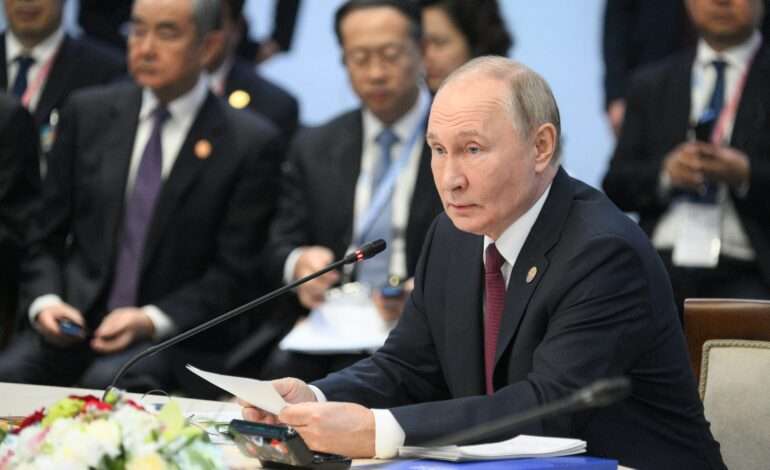
Kremlin says Russian economy resilient despite sanctions pressure
The Russian economy has developed resilience against Western sanctions after years of enduring external pressure, said Kremlin spokesman Dmitry Peskov on Wednesday.
“We have been living under a significant number of sanctions for quite some time. Our economy continues to function under a wide range of restrictions. Naturally, we have developed a certain immunity to them,” Peskov told reporters, in response to questions about Russia’s readiness for possible new U.S. sanctions.
His comments followed a statement by U.S. President Donald Trump, who shortened the timeline for a Russia-Ukraine ceasefire deal from 50 days to 10, warning of sanctions, tariffs, or “something else” if talks fail. However, Trump also admitted uncertainty over the impact of such measures.
Analysts and former U.S. officials, including ex-National Security Advisor John Bolton, have questioned the effectiveness of additional sanctions. Market observers noted that secondary sanctions on Russian energy could drive up prices in the U.S., potentially undermining Trump’s inflation-control promises.
In a retaliatory move, Russia has significantly expanded its entry ban list targeting EU officials and citizens of European states. The blacklist includes individuals involved in sanctioning Russia, proposing international tribunals, or advocating seizure of Russian assets.
Also named are those aiding Ukraine with military supplies, facilitating dual-use technology transfers, or organizing economic blockades against Russian vessels, especially in the Baltic Sea. Russia’s Foreign Ministry warned that further EU sanctions would prompt proportional responses.
The EU’s 17th and 18th sanctions packages, passed on May 20 and July 18, respectively, targeted more than 50 individuals and entities and further restricted oil trade with Russia, lowering the price cap on Russian crude from $60 to $47.6 per barrel.